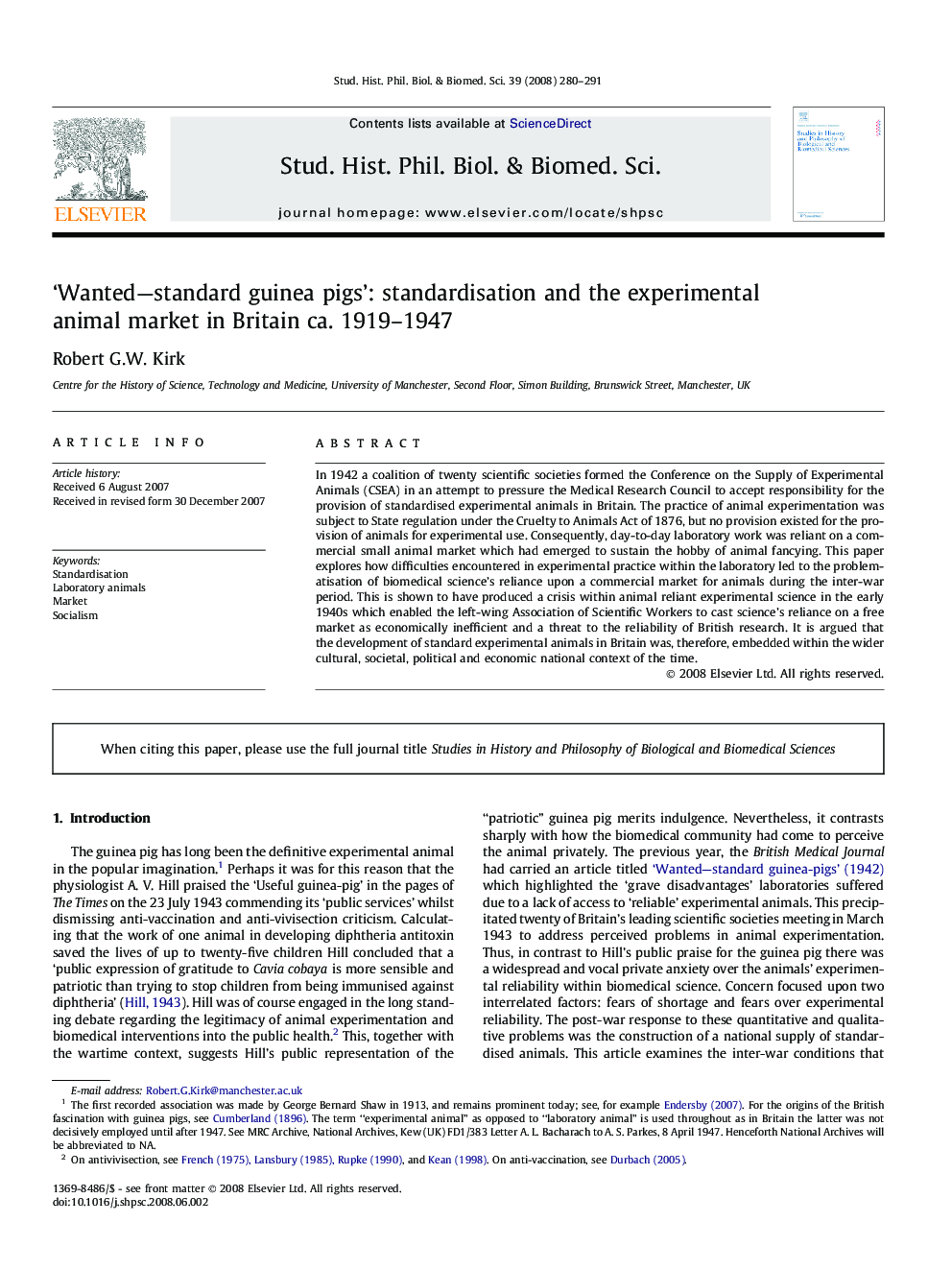| Article ID | Journal | Published Year | Pages | File Type |
|---|---|---|---|---|
| 1162084 | Studies in History and Philosophy of Science Part C: Studies in History and Philosophy of Biological and Biomedical Sciences | 2008 | 12 Pages |
In 1942 a coalition of twenty scientific societies formed the Conference on the Supply of Experimental Animals (CSEA) in an attempt to pressure the Medical Research Council to accept responsibility for the provision of standardised experimental animals in Britain. The practice of animal experimentation was subject to State regulation under the Cruelty to Animals Act of 1876, but no provision existed for the provision of animals for experimental use. Consequently, day-to-day laboratory work was reliant on a commercial small animal market which had emerged to sustain the hobby of animal fancying. This paper explores how difficulties encountered in experimental practice within the laboratory led to the problematisation of biomedical science’s reliance upon a commercial market for animals during the inter-war period. This is shown to have produced a crisis within animal reliant experimental science in the early 1940s which enabled the left-wing Association of Scientific Workers to cast science’s reliance on a free market as economically inefficient and a threat to the reliability of British research. It is argued that the development of standard experimental animals in Britain was, therefore, embedded within the wider cultural, societal, political and economic national context of the time.
